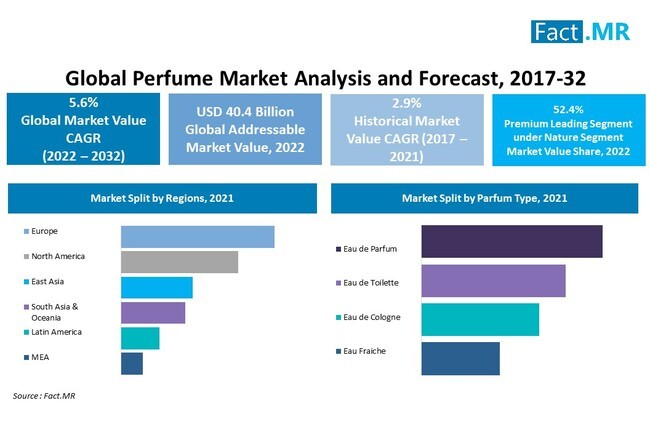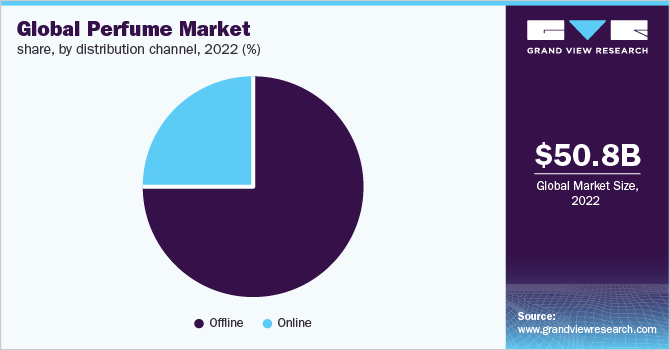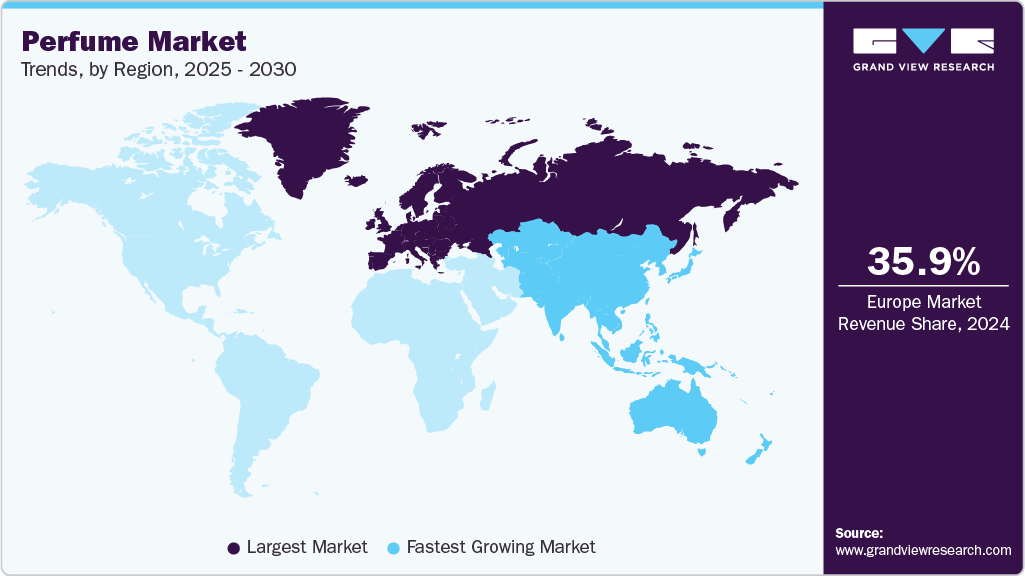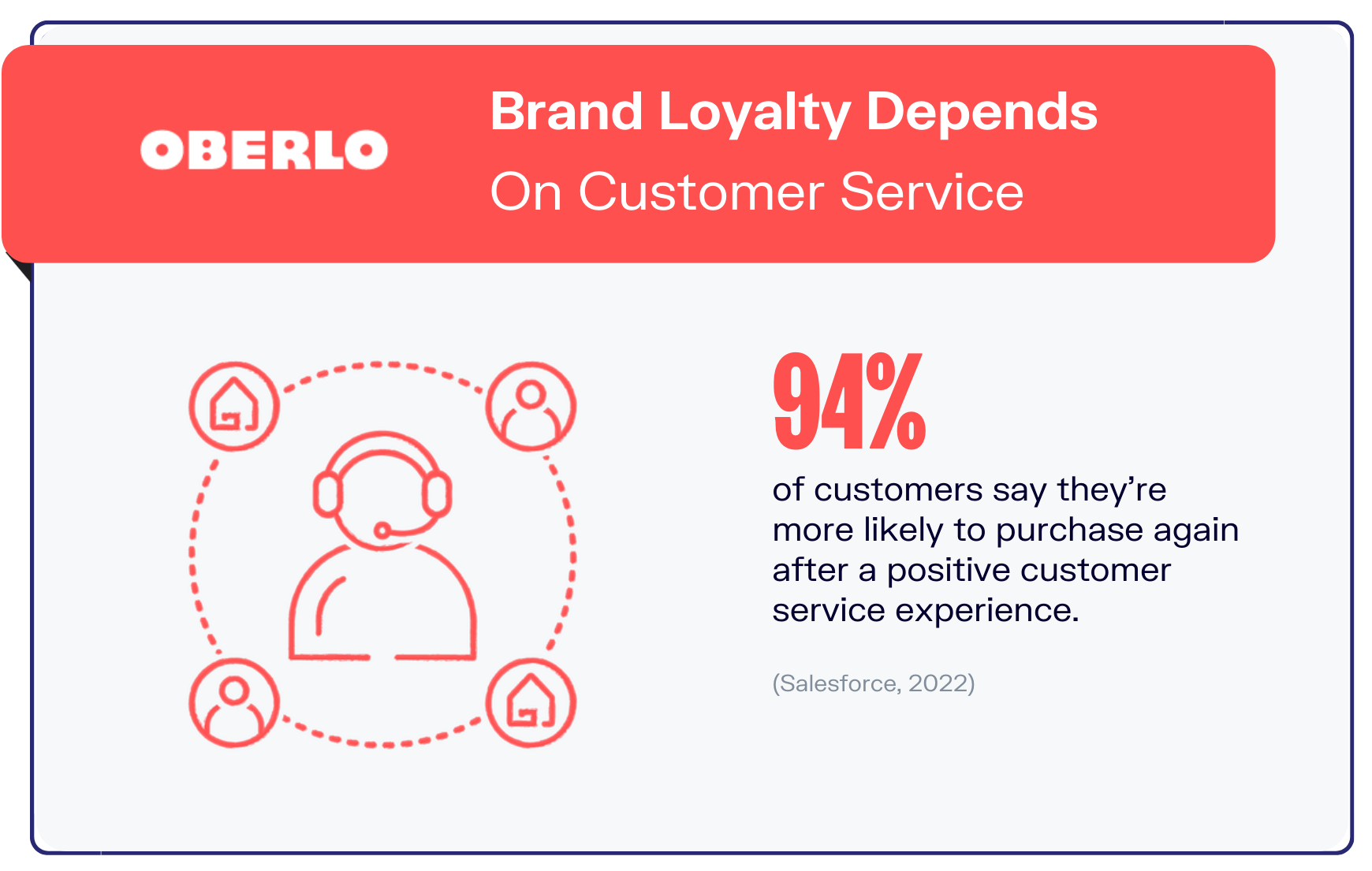The global fragrance and perfume market is expected to reach a value of $69.25 billion by 2030. Colognes and Eau de toilettes make up a significant portion of sales. As consumer interest in personal care and grooming continues rising, there is ample room for new entrants.

While mass-market fragrances fight for market share, the distinctive positioning and exceptional branding of small-batch colognes set them apart. With attention to scent development and branding, micro-perfumers can carve out a profitable niche.
This guide will walk you through how to start a cologne business. Topics include market research, competitive analysis, registering your EIN, obtaining business insurance, marketing, customer focus, and more.
1. Conduct Cologne Market Research
Market research is essential for newcomers to the perfume industry. It offers insight into your target market, trends in scents and products, top perfume brand marketing tips, and other details essential to your business plan.

As you conduct market research to form your own perfume line, some details you might learn include:
- When segmented by gender within the cologne market, 55% of sales are associated with men’s products while 45% are female.
- Growth in demand for gender-neutral and LGBTQ-aligned fragrances is rising faster than traditionally gendered products.
- New niche and specialty brands focusing on artisan production and ethical sourcing are disrupting the market.
- Some revenue can be earned by selling cologne directly to hair salons and barbershops that provide additional beauty services to their clients.
- Small startups have found success through digital-first models, leveraging social media and influencer marketing.
- The key purchase drivers for these demographics are transparency, sustainability, and emotional connection.
- Expanding global e-commerce paired with the sampling model creates a strong tailwind for cologne startups.
- From boutique apothecary branding to lean startups dropping new scents weekly, innovation in the fragrance market is leading to further segmentation.
- Cologne founders with an authentic story, ethical production values, and reciprocal relationships with customers can claim market share.
Navigating crowded shelves and saturating ad spend will be challenging but forging intimate customer connections will overcome any obstacle. The opportunity for cologne startups has never been brighter.
2. Analyze the Competition
Understanding the competitive landscape is crucial when assessing the viability of a cologne venture. Whether selling in local boutiques or running an e-commerce shop, meticulous competition analysis uncovers threats, opportunities, and ideal positioning unique from rivals.

The first step in competitor analysis for your perfumes is identifying companies aligned with your prospective target audience. Search industry databases like Euromonitor for market share data based on demographics, price points, retail channels, and consumer trends.
Delve into the digital presence of each major competitor. Analyze traffic metrics from SimilarWeb and keyword rankings with SEMrush to gauge their visibility and engagement. Study their social media followership and engagement rates. Discover which platforms and influencers provide traction.
For online brands, build customer profiles using review sentiments and comments on Trustpilot. For physical store competitors, observe in-person branding, merchandising, and staff expertise. Capture pricing across both channels for comparison.
Consolidate findings into a competitive SWOT analysis. Pinpoint product weaknesses to capitalize on and threats that superior branding, ingredients sourcing, and customer intimacy can overcome. Uncover consumer pain points competitors fail to resolve.
Spot unmet niche demand for personalized fragrances or gifting for example. Use insights to shape business and marketing plans so competitive advantage stems from meaningful differentiation and focus.
3. Costs to Start a Cologne Business
Starting a cologne video requires more than a flashy perfume bottle. You need to invest in everything from the ground up. As you build your business, you’ll encounter startup and ongoing costs, including:
Startup Costs
From product development to marketing and infrastructure, essential start-up costs often exceed $100,000. Some common expenses you’ll encounter as a successful business selling perfume include:
- Creating an original cologne formula with the help of an expert perfumer costs around $5,000 initially, with tweaks and iterations adding more.
- Trademark registration and establishing an LLC runs $500-1,500. Designing branding assets like logos and packaging starts around $1,000 with a graphic designer.
- Compliant product labels meeting FDA and FTC guidelines.
- Standard 50ml-100ml sizes mean at least $10,000+ inventory expense before selling the first bottle.
- With 500 square feet recommended initially, that equates to $6,000/year.
- Shopify Plus or similar e-commerce platforms cost $2,000/year for sales and order processing on top of transaction fees per sale.
- Google and Facebook ads cost anywhere from $5 to $50+ per conversion depending on competition and demographic targeting.
- Instagram and TikTok influencer partnerships run $500 to $5,000+ per post.
- Budget at least $15,000 for marketing experiments across channels to identify what resonates before optimizing spend.
Additional expenses like office supplies, product samples, and legal and accounting fees add up fast. Having a 6-12 month buffer of at least $40,000 covers these variable costs. This allows focusing energy on growth until revenue stabilizes.
Ongoing Costs
Once established, ongoing production costs continue from bottle and component replenishment to new batch formulation and labeling. Distribution center fees persist, increasing as order volume expands. The same goes for transaction costs from the sales platform.
Marketing and advertising remain critical for customer acquisition so 10-25% of revenue should feed back into these efforts long-term. Lastly, legal, finance, and other professional services sum to significant yearly overhead though optimizing processes over time can tame costs.
4. Form a Legal Business Entity
When launching a fragrance brand, the legal structure profoundly impacts ownership, liability, and growth prospects. Weighing options including sole proprietorships, partnerships, corporations and limited liability companies (LLCs) is essential.
Sole Proprietorship
Sole proprietorships offer the easiest route with no formal registration needed beyond requisite business licenses. Owners also report income via personal tax returns. However legal and financial separation is non-existent, exposing personal assets to satisfy any cologne venture’s debts or lawsuits.
Partnership
Partnerships allow multiple owners to combine assets and expertise to get a perfume business off the ground. However similar unlimited financial liability means a partner’s mistakes or negligence can still drain your assets. Ambiguity on authority dilution and buyout protocols also strain relationships over time.
Corporation
Forming a standard C-Corporation shields personal assets and is attractive for eventually going public to trade shares. However double taxation on corporate profits and shareholder dividends is costly. Strict governance requirements like annual meetings and public filings also burden small founders.
Limited Liability Company (LLC)
Establishing a formal Limited Liability Company (LLC) maximizes credibility and growth prospects for a budding cologne empire by blending the best aspects of partnerships and corporations. LLC operating agreements codify each member’s rights and responsibilities. Personal assets enjoy protection from any business judgments.
5. Register Your Business For Taxes
Before selling the first bottled scent, secure critical tax registrations to comply with IRS and state regulations. An Employer Identification Number (EIN) establishes your business identity distinctly from personal Social Security Numbers for tax purposes.
To register for your EIN:
- Simply navigate to the EIN Assistant site and select your LLC or other formal business structure.
- Provide the official legal name matching that on formation documents.
- List any “Doing Business As” variant brands.
- Select the Tax Matters Partner responsible for filings and payments among LLC members.
- Specify the physical US address of your perfume house headquarters, not a PO box.
- Add the main company phone number.
- Select your ownership category and payment classifications for W2 employees when you begin hiring.
- Specify what month/year your fragrance venture was legally formed.
Upon submitting the short EIN form, an assigned number should display immediately indicating successful registration. Retain this EIN confirmation notice detailing your registration in case of any disputes. Soon after an official IRS letter arrives by mail formally confirming the EIN assignment.
With your federal EIN set, contact your company’s home state department of revenue online to register for necessary sales tax collection. This enables charging all applicable state and local sales taxes at checkout when selling directly to customers.
Registration forms vary by state but request much of the same LLC foundation information supplied to the IRS. Many states even let you import IRS details to auto-populate filings. Pay no registration fees upfront, merely remit sales tax revenue on future earnings based on state requirements.
6. Setup Your Accounting
Meticulous financial tracking separates thriving perfume houses from those that flounder. Investing in rigorous accounting infrastructure gives fledgling fragrance moguls visibility into cash flow and fiduciary health. Budgeting, payroll, tax filings, and audits demand procedures balancing creativity with numerical precision.
Accounting Software
Start by transferring all start-up funding into a dedicated business bank account under the LLC’s name. Never compromise personal and company finances. QuickBooks accounting software centralizes tracking income and expenses, integrating directly with bank and credit card accounts via API.
Hire an Accountant
While learning QuickBooks individual modules has a learning curve, an accountant efficiently customizes ledgers, invoices, payments, and tax forms. They handle bookkeeping and monthly/quarterly reconciliations so founders stay focused on crafting exquisite scents.
Apply for a Business Credit Card
Apply for a business credit card in the LLC’s name to simplify tracking expenses. Purchases automatically sync into accounting tools. Use diligently to demonstrate fiscal maturity when applying for loans. Check card statements weekly and pay balances in full.
Open a Business Bank Account
Opening a business bank account is beneficial for a new fragrance creation company. It helps you maintain accountability and fosters easy organization come tax time. Keeping personal and professional finances separate also reduces the risk of accusations of fraud.
7. Obtain Licenses and Permits
Selling bottled potions like colognes requires various registrations beyond business formation filings before legally operating. Find federal license information through the U.S. Small Business Administration. The SBA also offers a local search tool for state and city requirements.
The priority is contacting county and city administrators where the founders plan to establish a perfume house to register intent and learn licensing prerequisites. Approvals can take 30-90 days depending on background checks and zoning assessments.
With a registered locale secured, extensive state permits around the environment and commerce apply for wholesale manufacturers. Consumer protection bureaus require cosmetics-specific registrations given allergen risks and applications on the skin.
Seeking federal certification builds additional trust with luxury perfume customers. Registering with the FDA confirms alignment with Current Good Manufacturing Practice (CGMP) standards around consistent quality, purity, and strengths during scaling batches.
The Alcohol and Tobacco Tax and Trade Bureau (TTB) mandates permitting any business to produce spirits like artisan perfumes with trace amounts of liquor for scent depth or as solvents. Their oversight includes licensing blending facilities and warehouse storing plus collecting special occupational taxes on select personnel.
8. Get Business Insurance
Despite meticulous risk management, unforeseen crises threaten even the savviest cologne startups. Myriad risks menace the tightly controlled environment necessary for brewing beloved concoctions reliably. Yet business insurance defends against utter ruin when disaster strikes.
Some potential risks include:
- Hot oil from a faulty heating element torches entire inventories of exotic essential oils before fulfilling pending holiday orders.
- A weak batch of custom glass leaked caustic acids on a customer mid-unboxing for their new signature scent, prompting urgent medical care plus a lawsuit.
- A payment systems hack exposes clients’ data and payment details sinking brand trust.
Business insurance covers extensive protections vital for bouncing back from inevitable setbacks.
General liability insurance handles costs arising from bodily injury, property damage, and personal and advertising injury that third parties suffer from business facilities, products, services, or contractors. Policies start around $500 annually depending on revenue and industry risk level.
Property insurance covers facility damage from theft, vandalism, or natural disasters like fires, floods, or storms. Inventory damage along with operational disruptions costs dearly so securing ample coverage ensures financial resilience. Expect approximately $1-2 per year per $1,000.
Revisit insurance needs whenever undergoing corporate restructuring, seeking loans, leasing new spaces, or onboarding partners. Work closely with small business-specialized agents to customize policies suiting current risk exposures.
9. Create an Office Space
As cologne entrepreneurs transition from basement mixing labs to serious scaling, securing an official workspace lends credibility to partners and customers alike. Possible options for balancing team needs, production capabilities, and client hosting include:
Home Office
Converting an extra bedroom into a makeshift office offers early-stage founders easy access to homemade scent experimentation on nights and weekends around day jobs or schooling. Expect costs around $2,000-5,000 to install comfortable desks, lighting, internet, and organizing cabinets for essential oil samples.
Coworking Office
Coworking spaces like WeWork dedicate private office suites specially designed for product design startups. On-demand conference room rentals provide stylish backdrops when pitching retailers on custom scent profiles. Round-the-clock keycard access enables synergy across perfumers.
Retail Office
For brands embracing retail experiences like custom engraved bottles, storefront boutiques double as experiential showrooms. Product testing bars and lounges facilitate customer connections while large display cases exhibit entire scent families.
10. Source Your Equipment
Crafting artisanal colognes requires various apparatuses for measuring, mixing, distilling, and aging experimental scent compounds. Options for acquiring gear span buying new or used plus renting or leasing depending on budget constraints.
Buy New
Purchasing equipment new from specialty retailers like PerfumersWorld ensures the latest models with full warranties. Digital scales precisely weigh picograms of rare extracts like ambergris. Variable temperature water baths heat ingredients accelerating chemical reactions.
Buy Used
Scouring online marketplaces scores stellar savings on only gently used gear. Facebook Marketplace and Craigslist frequently list orphaned kits from failed startups or hobbyists moving. Expect solid reagent glassware sets, magnetic stir plates, and other DIY staples at 50-75% discounts.
Lease
Lease popular apparatus like gas chromatograph mass spectrometers costing $60,000+ new without major upfront investment. ThermoFisher and other scientific gear conglomerates cater to startups needing cutting-edge quality control capabilities on modest initial budgets.
Rent
Rental rates around $2,000 per month secure the latest rigs with unlimited tech support. However, usage caps on analytic tests add up fast for high-volume product lines.
11. Establish Your Brand Assets
Before your first fractioned distillation condenses those opening elusive notes, establishing a professional brand presence conveys sophistication key to succeeding in the hyper-competitive fragrance trade. From logos to websites, branding touches declare your dedication to quality.
Get a Business Phone Number
Secure a memorable business phone number and email address establishing authority and accessibility. Services like RingCentral offer vanity 1-800 numbers with custom recorded greetings plus voicemail transcription for around $30 per user monthly.
Design a Logo
A striking logo crystallizes your origin story and product essence into an iconic mark. Looka’s AI logo maker generates hundreds of on-brand concepts in minutes or work works with their human designers to refine a cherished sketch costing $50-150.
Print Business Cards
Print premium business cards and retail display signage with Vistaprint using logos and motifs. Expect 500 cards for under $50. Window graphics and hanging banners command attention on busy boulevards, with retractable banner stands folding neatly behind counters.
Buy a Domain Name
Before pirates spoof copycat online stores, register domains bearing business names through accredited registrars like Namecheap for under $15 annually. A “.perfume” top-level domain signals specialty authority.
A website is important to a successful perfume launch. Create sites on Wix for easy drag-and-drop layouts or hire expert freelance developers on global marketplaces like Fiverr if desiring custom e-commerce functionality.
12. Join Associations and Groups
Beyond scientific expertise, cologne moguls require community connections to find reputable suppliers, troubleshoot manufacturing quirks, and discover and vet partnerships. Industry associations, local meetups, and online groups provide support in navigating the opaque perfume trade.
Local Associations
Longstanding associations like the American Society of Perfumers welcome new artisans charging nominal annual dues starting around $125. Browsing member directories helps identify contract fillers and bottlers recommended by fellow founders.
Local Meetups
Meetup lists relevant gatherings across regions to connect with niche perfumers and retailers excited to showcase independent fragrances. Monthly happy hours or facility tours build local support networks. Discover wax suppliers specialized in custom-shaped candles by mingling with regional industry peers.
Facebook Groups
Online fragrance groups on Facebook have thousands of members swapping reviews on new releases, clone recipes, and strategies. Highly engaged threads draw feedback comments on scent profiles. Check out groups like Cologne Lovers Group and Perfumers Marketplace.
13. How to Market a Cologne Business
Without relentless promotion, the world’s most exquisite elixirs remain tragically undiscovered. Marketing is thus mandatory for establishing awareness and trial that hooks devoted patrons. Both digital and traditional channels prove vital when sharing the joys of artisan alchemy.
Personal Marketing
First focus marketing efforts among existing friends, family, and colleagues by offering samples. Request brutally honest feedback on what nuances to adjust in a beta scent. Then incentivize sharing opinions online through coupon codes or free engraving on full-size purchases.
Digital Marketing
Modern digital tactics efficiently reach hordes of prospective devotees curious to uncover their next signature scent. Targeted Google and Facebook ads touting organic sandalwood and ethical Madagascar vanilla notes attract eco-conscious shoppers.
Launch dedicated YouTube tutorials on properly sampling colognes or selecting ideal gifts. Interview in-house perfumers sharing creative inspirations behind the scenes. Welcome viewer comments and questions building community.
Submit press releases to industry publications like Global Cosmetics News announcing new seasonal scent families. Pitch journalists at Beauty Independent on the resurgence of niche perfumers preserving centuries-old traditions.
Regular email newsletters remind subscribers of upcoming events like virtual crafting workshops perfect for at-home date nights. Special discounts and early access to limited-release scents draw potential customers to your own perfumes.
Traditional Marketing
Occasional direct mail postcards with authentic Polaroid snapshots of essential oil harvesting journeys make tangible connections with the people powering productions half a world away. Handwritten notes breathe life into overly digital outreach.
Once establishing steady sales velocity online, explore select print ads in regional luxury magazines or prime billboards along affluent downtown commutes. Radio spots on NPR programming aligned with values reach smart listeners valuing purpose-driven purchases.
14. Focus on the Customer
Obsessive customer service cements lifelong brand devotion that fuels referrals and repeat purchases from delighted clients. Consider cologne-buying occasions from romantic gifts to professional milestones where sentimentality matters.

Surprise repeat purchasers with handwritten thank you notes and small gifts like leather travel cases with new travel sprays. Make checkouts conversational by asking about upcoming vacations or weddings where signature scents play starring roles.
Respond promptly to questions or complaints posted online with empathy, then resolve issues completely. Send flower bouquets or replacement products to apologize for shipping delays. Negative publicity spreads quickly so act swiftly to protect reputations.
Small touches feel enormous for niche startups relying deeply on word-of-mouth referrals. Scent sells themselves initially but relationships keep visitors returning while bringing like-minded friends along for the ride. Put people first always.
